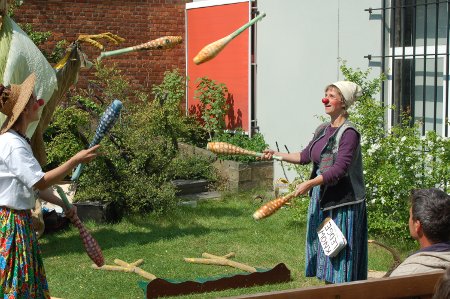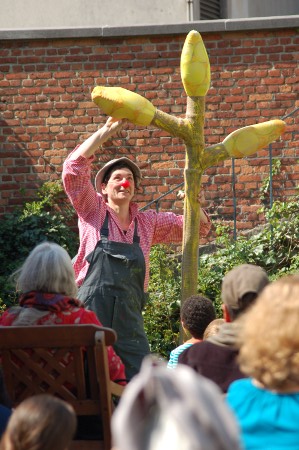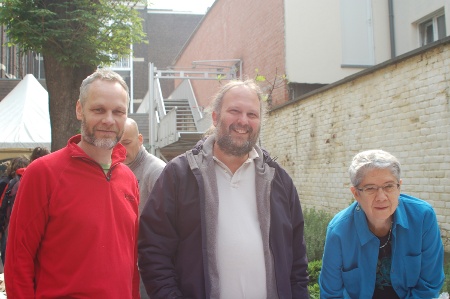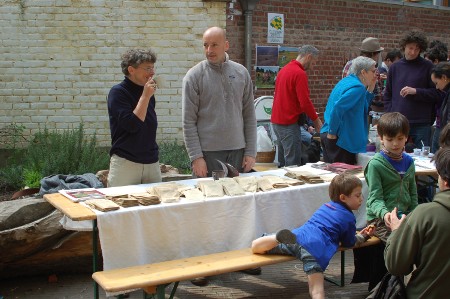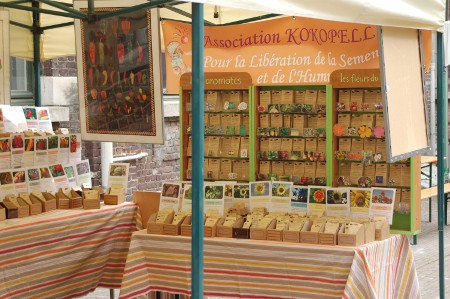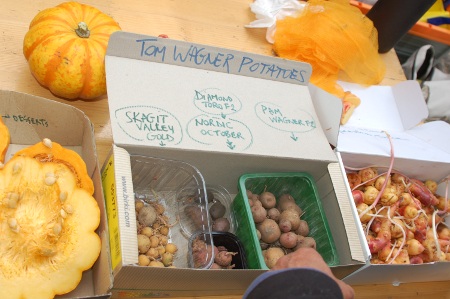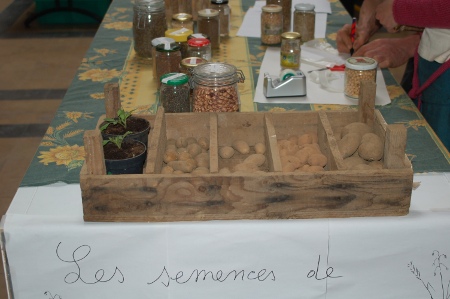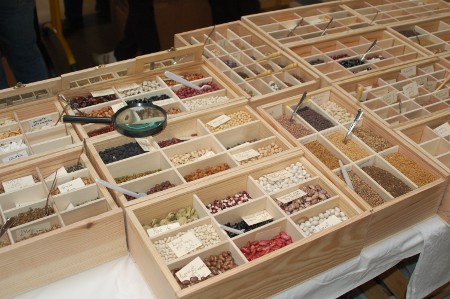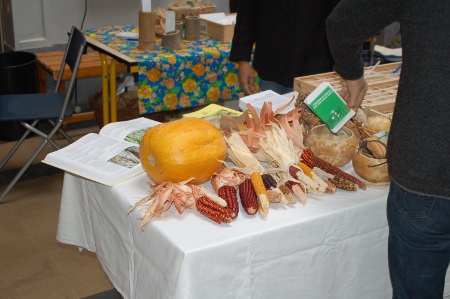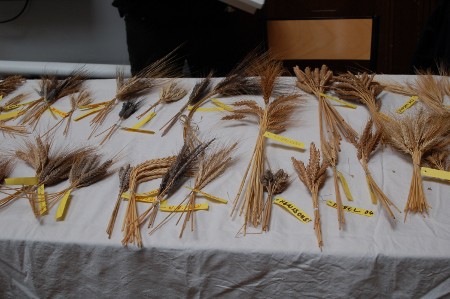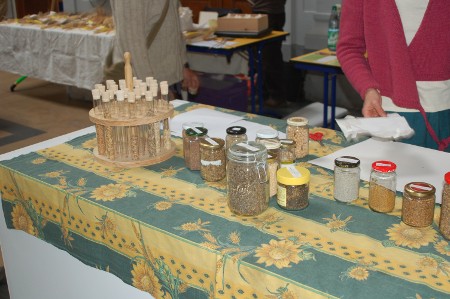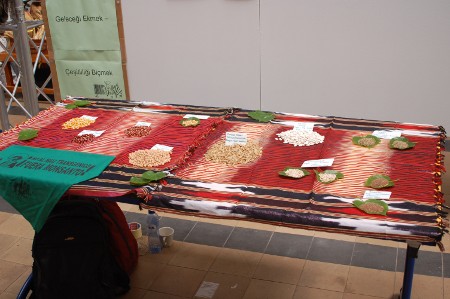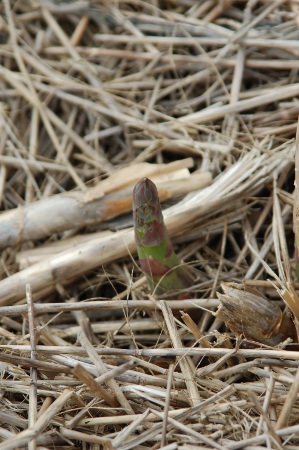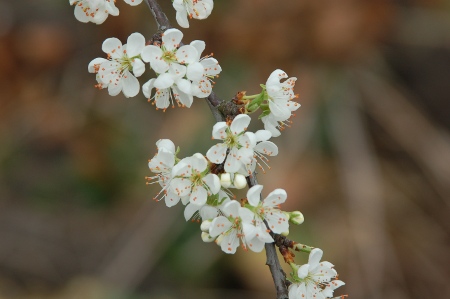Julie just left this comment on another post, and since the answers to her questions are kind of long I thought I would make a post out of it and hope others would add their comments too!
hi, i was just wondering if anyone has any information about specific brands of non-gmo seeds sold in canada? also, i was wondering if a product is called “organic” but does not have a certified organic label, can i trust that it is in fact organic? One more thing, im a complete novice, so bear with me, do i have to buy organic soil to grow an organic garden? and if so, any credible canadian brands?
Thanks Julie! Someone just asked me the other day to write more about gardening.
I write new posts like this every year around this time, because they are hard to find again in a blog where things scroll off the front page after a few days. The gardening world is full of people with different opinions and perspectives on gardening and these are of course my own and those who choose to leave comments here. You shouldn’t be afraid to look elsewhere if you don’t like the answers here. In particular, I can’t offer a lot of advice about Canadian brands because I live in the Netherlands, but maybe others can.
GMOs
First of all, if GMOs are your concern, you are unlikely to find any GMO garden seeds, or even GMO contaminated seeds on the market. GMO crops are mostly commodity crops like corn, soy and canola (rape), and these can’t contaminate vegetables most commonly grown in home gardens. Also, if you are growing known varieties, for example heritage or heirloom varieties, there can’t only be tiny bits of contamination, it doesn’t work that way. In order for these plants to be contaminated with GMOs, there has to be a crossing between two plants (a GMO and non-GMO plant) and this would result in a 50/50 mix of genes, giving you a totally different plant.
Occasionally GMO varieties are specifically offered for sale to home gardeners, but this is very rare. GMO seeds are mostly sold to farmers. You don’t need to worry about being fooled, because these seeds are very expensive and the companies who offer them expect you to not only pay a lot extra for them, but generally also sign written agreements concerning their use.
As long as you aren’t growing commodity type crops where GMO varieties are already being sold, you grow known varieties like heirloom or heritage ones, you don’t intentionally buy GMO seeds and you don’t eat any wildly unexpected results from your garden, you can’t possibly be eating any GMOs from your garden.
Organic
There’s a very important difference between (certified) organic seeds, and seeds grown for an organic gardener like yourself. (Certified) organic seeds are grown without chemicals and pesticides and certified GMO-free (even though as I explained above these probably wouldn’t contain GMOs anyway). On the other hand, heritage/heirloom seeds were bred at a time when chemicals and large scale farms didn’t exist or weren’t as widely used as they are today, and so are much better suited for an organic garden like yours.
My suggestion would be to choose heritage or heirloom varieties over certified organic. I’ve written a lot about this before, and I’ll link to some of these posts in a minute, but the best way to choose a seed company is by picking one that doesn’t sell anything but heirloom or heritage seeds! Make sure when you look at the seed listings of a company you are considering buying seeds from they don’t offer any seeds labelled as F1 or hybrid. It’s not that there’s anything automatically wrong with F1 hybrid seeds, but companies that sell them often have misleading marketing intended to discourage you from buying good quality heirloom varieties, and so this is a good way to choose a seed company. Some excellent Canadian seed companies that fall into this category are:
Annapolis Valley Heritage Seeds
Salt Spring Seeds
Terra Edibles
Stellar Seeds
Sunshine Farm Seeds
Hope Seeds
It’s worth adding that I’m pretty sure all of these companies grow their seeds without chemicals and fertilizers anyway. Heirloom/heritage seeds don’t require many chemicals, and most companies like these don’t bother spending the money on them and it would be against their principles anyway. If they say their seeds are grown organically, I would trust them to be telling the truth. Many small companies like these can’t afford the cost of being certified organic, but that doesn’t mean their seeds are grown any differently.
Here are a few of the posts I’ve written in the past on this topic:
How to Buy Heirloom/OP Seeds
Certified Organic Can Be Bad for Small and Local
The reality is many of the best gardening seeds can be had for free, or just the cost of postage and handling. I have a list of people all over the world, including some in Canada, who re-save their garden seeds and send them to others:
Blogger Seed Network
While you may not want to start gardening with only seeds from other’s gardens, I would really suggest planting at least 1 or 2 varieties you get this way each year.
I have a lot of information elsewhere on this blog about saving your own seeds, if you are ever interested in that, but this is probably a topic for another post. If you search around with Google or the search box here, you will probably easily find it.
Planting Soil
Okay, I’ve written lots about this before too. There’s lots of controversy in potting soil.
To try to give a quick answer to your question, potting soil is nearly always made from peat or a peat alternative, mixed with a few cents of chemical fertilizer, then put in fancy packaging with the price marked up 500%. By it’s nature it’s not organic, nor can it easily be made organic. Even if it’s called ‘organic’ or ‘natural’, you shouldn’t believe it!
The fertilizer is necessary, because most plants won’t grow without any nutrients in the ground.
The main problem is commercial potting soil is sterile and weed free. When you start seedlings indoors, this is important because micro-organisms present in organic fertilizer alternatives like compost will often kill small seedlings. Even if you buy organic potting soil that’s made with something like compost as the fertilizer, it may not be sterile and it may kill small plants.
You can make your own organic potting soil by mixing peat moss in equal amount with home made compost sterilized in the oven at 400F (200C) for 30 minutes. The peat doesn’t have to be sterilized, only the compost. It’s also possible to use bleach to sterilize the compost. I can tell you from experience that cooking compost doesn’t smell very good…
Most people don’t go to this trouble, or the expense of buying organic commercial potting soil, and just accept this is the one non-organic part of their garden. This is what I do. I buy normal potting soil when I have to, but otherwise I’m a completely organic gardener.
Okay, I hope I’ve answered your questions, but you probably have a lot more now… I hope this helped.





